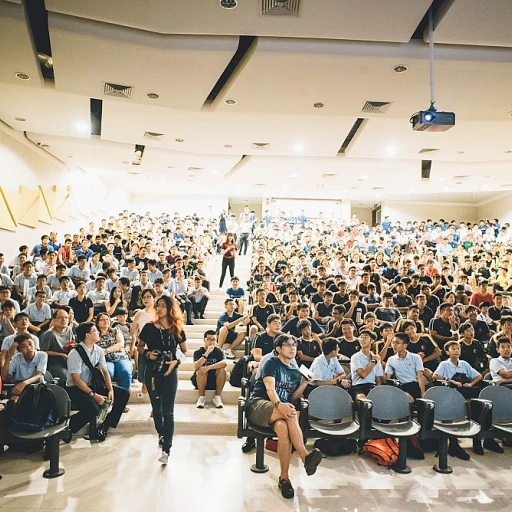Understanding the Concept of Hoteling Reservation
Exploring the Essence of Office Hoteling
The concept of hoteling in the workspace is reshaping the traditional boundaries of office environments. Office hoteling, also referred to as flexible workspace management, involves the use of a reservation system that allows employees to book desks, meeting rooms, and other office spaces as needed. This approach is particularly beneficial in hybrid work environments where a flexible schedule is offered. With the adoption of hoteling, companies can optimize the utilization of their office space, ensuring that every desk, workstation, and meeting room is used efficiently. This system enhances the work environment by promoting a seamless balance between in-office and remote work. The implementation process involves a robust hoteling software system that manages desk booking in real time, providing employees with the ability to secure their workspace before arrival. This approach not only improves space utilization but also contributes to employee satisfaction by accommodating their flexible work needs. As businesses strive to adapt to modern work trends, understanding and leveraging hoteling systems can significantly enhance operational efficiency. Exploring effective strategies in this domain can offer insights into a successful transition towards more dynamic office settings. This transition is vital for Indian companies and is closely tied to evolving office management methodologies.Benefits of Implementing Hoteling Systems
Advantages of Incorporating Innovative Reservations
Office hoteling systems are transforming the modern work environment by offering a flexible approach to workspace management. These systems allow employees to book desks, meeting rooms, and other spaces in real-time, optimizing space utilization and enhancing productivity.
One key benefit is the support of a hybrid work model, which many companies are adopting in response to evolving work trends. Employees can book their workspace according to their schedule, fostering a dynamic and collaborative office atmosphere.
Moreover, these systems contribute to significant cost savings. Reducing the need for fixed desks means companies can minimize real estate expenses and invest in more productive resources. By implementing hoteling software, businesses witness an increase in desk space efficiency and a decluttered workspace.
Employee satisfaction is another essential advantage. A well-planned desk booking system offers autonomy to employees, allowing them to choose their preferred workspace. This flexibility often leads to increased job satisfaction and a positive workplace culture.
For organizations looking to streamline their workspace management, exploring effective strategies can offer valuable insights into the optimal use of desking software and other technological tools.
Challenges Faced by Indian Companies
Challenges in Adopting Hoteling Systems in India
Implementing a hoteling reservation system in Indian companies can significantly enhance space utilization and employee satisfaction. However, several challenges can impede this transition. One major hurdle is the existing office culture. Many companies in India have traditionally relied on assigned seating, making the shift to a flexible, hot desking environment a significant cultural change.
Another challenge is the technological adaptation required. For a seamless transition, companies need robust hoteling software that can handle real-time desk booking, manage meeting rooms, and ensure effective visitor management. The integration of such systems can be complex and may require substantial time and resources. Additionally, ensuring that the software is user-friendly for employees is crucial to prevent resistance to change.
Space management is another concern. Companies need to ensure that their office space is optimized for flexible work arrangements. This involves not just installing the right technology but also redesigning the physical layout to accommodate a hybrid work model. Balancing between shared spaces and private areas can be tricky, especially when considering employee privacy and the need for collaborative work environments.
Moreover, the initial cost of implementing a comprehensive desk hoteling system can be prohibitive for some companies. The investment in technology, combined with potential real estate modifications, can be substantial. Despite the long-term benefits office hoteling offers, the upfront financial commitment can be a deterrent.
Finally, managing employee expectations and ensuring a smooth transition is essential. Employees accustomed to having their own desks may find the change to a flexible workspace challenging. Clear communication and training are vital to help employees understand the benefits of the new system and how it can enhance their work environment.
For more insights on optimizing office space in Indian companies, you can read about optimizing electronic medical records for small practices.
Technological Solutions for Seamless Implementation
Optimizing Technology for Effective Booking Systems
In the evolving landscape of office hoteling, implementing the right technology is crucial to ensure smooth and efficient management of resources. Desk booking and reservation systems are at the heart of this transition, offering office managers a digital solution tailored for modern workplaces. Let's delve into the pivotal tech components that facilitate a seamless experience:- Real-Time Desk Availability: Advanced hoteling software provides real-time updates on desk and workspace availability. Employees can view and book spots, optimizing space utilization and reducing time spent on searching for available desks.
- Interactive Floor Plans: Many systems feature interactive maps of the office, enabling employees to visualize and select their preferred work areas. This feature enhances employee satisfaction and supports flexible work arrangements.
- Integration with Existing Systems: A robust reservation system should integrate seamlessly with existing workplace software. Whether it's syncing with calendars or visitor management tools, this integration aids in creating a cohesive work environment.
- Employee-Centric Features: Technologies offer features such as personalized user profiles, favorite desk settings, and notifications, tailoring the hot desking experience to individual needs.
- Analytics and Reporting: Effective hoteling systems provide data analytics on space utilization, helping office managers understand trends, optimize desk allocation, and improve overall office space management.











